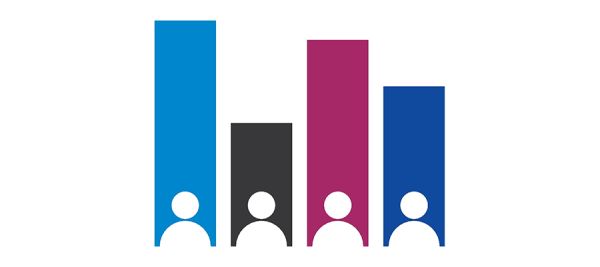
Blog | 17 Apr 2024
9 questions to ask to assess cultural fit in the healthcare industry
The healthcare industry is one of the most dynamic and challenging sectors, where the need for skilled professionals goes hand in hand with the necessity for team members who resonate with the organisation's culture and values. Here, we talk to Referoo Director Chris Hunter about balancing the two and the critical role of reference checking.

Blog | 23 Nov 2023
How online reference checking enhances the candidate experience
Online reference checking doesn’t just make it easier for recruiters and talent acquisition teams. It can significantly enhance your candidate experience, too. Here’s how.

Blog | 21 Sep 2023
How to get the most out of online reference checking as a referee
With tools like Referoo, the traditional process that once involved lengthy phone calls and pen-paper evaluations has transitioned into seamless online reference checks. This shift not only benefits companies and job applicants but also supports referees.
Here's a closer look at why online reference checking can be a positive shift for referees and how to get the most out of it.

Blog | 31 Aug 2023
Striking a balance between automation and human interaction in talent acquisition
Technology has dramatically reshaped traditional practices in the ever-evolving sphere of talent acquisition, and automation seems to be an endless juggernaut. As talent acquisition departments turn increasingly towards automated systems for sourcing, screening and engaging candidates, it’s important to understand how to strike the right balance. Here, we talk to Referoo Director Neil Rose about defining the boundaries in a fast-moving landscape.

Blog | 23 May 2023
How to use reference checks to determine a candidate's attitude
We've all heard (and maybe used) the adage 'hire for attitude, train for skills', and it can be an excellent strategy for non-technical roles. But how do you determine that the candidate has the right attitude?
Of course, the interview provides an opportunity, but it won't tell you everything you need to know.
Enter the reference check. Online reference checking is a powerful tool to delve deeper into a candidate's attitude. In this blog, we will explore how online reference checking can be used to gain valuable insights, helping organisations make more informed hiring decisions.

Blog | 20 Apr 2023
Gen Z is coming. Is your recruitment process ready?
Generation Z (b. 1997–2012) will account for 27% of the Australian workforce by 2025*, just two short years away. Forward-thinking talent acquisition professionals are preparing for these truly digital-native candidates with recruitment processes that meet the changing needs of a new generation.
Here are some key points to consider when adapting your approach.

Blog | 12 Apr 2023
Why your talent acquisition teams may be at risk of burnout
In the last few years, we’ve seen a dramatic shift in how companies hire. Global talent shortages combined with belt-tightening across organisations are putting pressure on recruiters and talent acquisition professionals, who are often tasked with finding the proverbial ‘needle in a haystack’. Here, we talk to Referoo Director and experienced recruiter Chris Hunter about ‘recruiter’ burnout, what’s causing it and what can be done about it.

Blog | 17 Mar 2023
Could the non-traditional candidate be an answer to the talent shortage?
As global economies continue to recover in the wake of the pandemic, talent shortages are a problem worldwide. Competition for top talent is fierce, forcing employers to get creative and look beyond industry experience to find new candidates. Here, we talk to Referoo Director Neil Rose about non-traditional candidates and how to evaluate them when their career path doesn't fit the mould.

Blog | 03 Mar 2023
The talent acquisition metrics that matter most when making tech decisions
The talent acquisition space is changing. The rise of machine learning and automation has led to some radical shifts in the hiring process, and it’s also fundamentally changed how we measure success. Here, we talk to Referoo Director Chris Hunter about how focusing on key talent acquisition metrics can drive recruitment technology decisions and improve hiring outcomes.

Blog | 27 Sep 2022
Why certainty of identity is more important than ever before
As employers continue to embrace remote work, talent pools no longer have geographic boundaries. While this increases access to skills and helps to ease the challenges of a candidate-short market, it also heightens the need for certainty of identity.

Blog | 20 Sep 2022
UK Right to Work checks are changing. Here’s what you need to know
In the UK, every new hire must undergo a Right to Work check before commencing employment. Prior to COVID-19, the UK Government required these to be completed face-to-face for most job seekers, including UK and Irish nationals, who typically make up the majority of candidates.

Blog | 22 Nov 2021
Three ways online reference checking can improve recruitment outcomes in the health and aged care sector
In health and aged care, the recruitment stakes can be incredibly high. Beyond the financial costs, making the wrong hiring decision has the potential to cost you your reputation or, even worse, have a detrimental impact on a vulnerable person in your care.
.jpg)
Blog | 03 Nov 2021
How online reference checking can help you find some of the best off-market talent
Manual reference checking is a significant time, cost and productivity drag for HR teams and recruiters alike. But some still hold on to it for one reason: talking to referees can be a way to build connections, potentially turning them into candidates for future roles.

Blog | 15 Oct 2021
Ask better questions, get better answers!
When was the last time you reviewed your reference checking questions? While there are some standard performance-based questions you’ll ask every referee, there is value in revisiting your questions to ensure you get the answers you need. Here are our tips for asking better reference checking questions.

Blog | 29 Sep 2021
“Don’t do that!” — 5 reference checking mistakes to avoid
At Referoo, we see the best of reference checking practices and the worst!
Here’s our round-up of the top reference checking mistakes – and how to avoid them.

Blog | 22 Sep 2021
Why reference checks are important in all aspects of life not just recruitment
Everyone knows that the real estate market is on fire at the moment. As a buyer, you’re attending open homes with dozens, sometimes hundreds of other prospective buyers. As a renter, the situation is much the same, and in both cases unfortunately there aren’t many ways to stand out from the pack.

Blog | 07 Sep 2021
Five Ways to Minimise Fraudulent References
With a growing list of reasons behind why a candidate might be inclined to submit a fake reference, it’s more important than ever to know how to minimise it. While there is an element of recruiter’s intuition in spotting a fraudulent reference, this doesn’t suffice in today’s digital world.

Blog | 26 Aug 2021
5 signs that you need to change your reference checking process
Manual reference checking – who has the time anymore? If you’re asking yourself whether it is time to automate your reference checking process, here are five signs that the answer is a resounding ‘yes.’

Blog | 11 Aug 2021
How To Make the Top Talent Want to Work for You – Stand Out With These 5 tips!
Studies show that the average employee spends around 90,000 hours at work throughout their career, about a third of their entire life. Most people would cringe at that number. But how many of your employees would consider that time well spent?

Blog | 03 Aug 2021
How big data is changing the HR space
Automation and data-capture are elements of just about everything we do these days. Our online shopping habits are tracked and payment information pre-filled, we receive targeted ads news and social media posts based on our browser history, and we inadvertently share the ins-and-outs of our daily lives with AI systems like Alexa and Siri. The result? A milieu of data swirling around the airwaves – about 2.5 quintillion bytes every day.

Blog | 26 Jul 2021
Job market bounce means recruiters need to work smarter
As I write this post, Sydney is once again in a lockdown. For many of us, that has come as a shock to the system, as Sydneysiders have enjoyed a relatively smooth run since last year’s widespread lockdowns.

Blog | 08 Jun 2021
Three ways to be certain a reference is genuine
Let’s face it, a resume, a piece of paper written by an applicant about their own skills and qualifications, only tells you a very small part of the story. When it comes to finding the right candidates, reference checks are your best channel to uncover critical insights about a candidate’s skills, personality and cultural fit.

Blog | 27 May 2021
Do I need to give a positive reference? Etiquette tips for referees
Ask any recruiter or hiring manager, and they'll tell you that a negative reference is better than no reference at all. When it boils down to it, a reference is simply another way for a recruiter to collect vital information to determine whether a candidate is right for a role. Regardless of whether your comments are positive or negative, the more honest information and context you can provide, the better.

Blog | 12 May 2021
Racking up costs: Why it painful to hire the wrong person
As the economy continues to regain its stride, business seems to be moving at a million miles an hour. When it comes to your recruitment process, however, it’s worth shifting down a few gears. Whether your business is coming out of hibernation or a rough period of redundancies, when you’re finally ready to take on new employees again, it’s important to be equipped with the tools to make the right decision. Otherwise, it will cost you.

Blog | 20 Apr 2021
Tips to get the right recruitment tech stack for your business
In recruitment, you often hear the term 'tech stack,' which is really just a fancy way of describing your end-to-end technology. Today, there are so many options out there that can automate just about every process, but the trick to getting your tech stack right is making smart investments that will make your life easier. Here is our guide to getting it right.

Blog | 30 Mar 2021
How to use online reference checks for business development
For as long as recruiters have existed, reference checks have been used as a business development opportunity because they are a way to both search for new job opportunities at the referee’s business and an opportunity to grab a high-value candidate.

Blog | 09 Mar 2021
5 ways to do better remote hiring
2020 is finally behind us, but COVID-19 will be with us for a while longer yet! As more and more recruitment is done remotely, businesses are moving to video recruitment. But how can you make it work better for you?
Here are our top tips for getting it right.

Blog | 02 Mar 2021
Burned out? Take a break, you (and the business) will be better for it
Work is always going to be a big part of your life. We all spend a good chunk of our time at work and for many, it’s a real passion (for others it may be a drag!).

Blog | 24 Feb 2021
Data-driven recruitment: Making it work better for you
In recruitment and HR, data is something we should be very comfortable with. Collecting and using it to find the right candidates is at the heart of what we do, but with so much data at our fingertips, it can be hard to know where to start. Your data can add significant value to your recruitment process and help you make better hiring decisions, but only if it’s used right.

Blog | 11 Feb 2021
Considering a career change? Here are three questions you should ask yourself
Whether because of changes to our industry, employment situation or lifestyle and values, many of us are rethinking our career options in 2021. But given the somewhat unstable market, is shifting careers something you should consider? Under the right circumstances, I would argue that it is, but here are three questions to ask yourself before you make a leap into the great unknown.

Blog | 04 Feb 2021
What’s the value of a reference? Why reference checks are more relevant than ever
Reference checks have long been an important part of the hiring process. At the most basic level, they help you confirm that your candidate for a role has the experience and skill set that they say they do.

Blog | 28 Jan 2021
AI: What it could mean for recruiters
True artificial intelligence (AI) whereby an algorithm makes intelligent decisions is in its infancy in many industries, but the potential for the recruitment industry is massive. Most recruiters are already comfortable with robotic process automation (RPA) where a system sends automated emails to candidates for example, and AI will essentially be an extension of this.

Blog | 02 Dec 2020
Free the people: Three tips to free up recruiters’ time
It was always a pet hate of mine from my time working in recruitment: Tasks that took me away from face time with my clients and candidates. Your recruiters should be spending more time doing what your clients pay for: Spending more resources on gaining a better understanding of both the client’s and candidate’s value propositions.

Blog | 18 Nov 2020
Why there’s still opportunity in recruitment during COVID
There has been some commentary around lately painting a bleak picture for the recruitment industry, with many organisations significantly reducing or freezing hiring altogether, but for me, it’s not all doom and gloom. For those forward-thinking recruiters who can ignore the noise and take a positive outlook, there are plenty of opportunities to be found.

Blog | 11 Nov 2020
Lying on your CV: Is it worth it?
In a competitive job market, like the one we are seeing currently, job seekers are looking for ways to stand out from the crowd and it can be tempting to ‘enhance’ your CV, but, with so much information available today, you’re unlikely to get away with it. What can feel like a small exaggeration or an inconsequential fib to get a foot in the door can cost you big time, even years down the track.

Blog | 27 Oct 2020
What to look for when upgrading your HR tech
HR tech is an area that is constantly evolving and, with so many new innovations in the space, many businesses are looking at redoing their tech stacks. If you’ve been using the same system for a while, upgrading can feel like a chore but it’s probably time, particularly if your version is no longer supported or, even worse, it’s not in the cloud.

Blog | 13 Oct 2020
Getting buy in: How do you better engage your internal recruitment stakeholders?
Hiring is a vital part in any business but, in 2020, it’s been an entirely different ballgame. It’s been a crazy year in so many ways and, for some businesses; it’s been an outright disaster. Like all things, there’s always a flipside and, for many businesses, the planning is underway for brighter days ahead.

Blog | 01 Sep 2020
Working from home: Can it work for recruiters long term?
In the wake of COVID-19, work from home is being touted as the future of our workforce and for many, it just might be.

Blog | 01 Sep 2020
Virtual Interviews: Are they here to stay?
One of the things I love most about the recruitment industry is the relationships and people-focus. I think it's how we do our job best, so I am going to be upfront and say that video interviewing isn’t my favourite piece of technology. But, as with all tech, there is a place and time for it.

Blog | 01 Sep 2020
Three tips to make reference checks a winning experience
Reference checking is often seen as a tick-a-box process, but it can be so much more; a chance to get real insights into your candidate, help you deliver a great onboarding experience, and even put the referee into a talent pool for a future role.

Blog | 01 Sep 2020
Future tech: What’s the next big thing on the rec tech horizon?
Recruitment and HR are becoming increasingly automated, with many companies realising the benefits of robotic process automation technology. Recruitment technology, or 'rec tech', is an exciting space that is constantly evolving, and the possibilities seem endless.